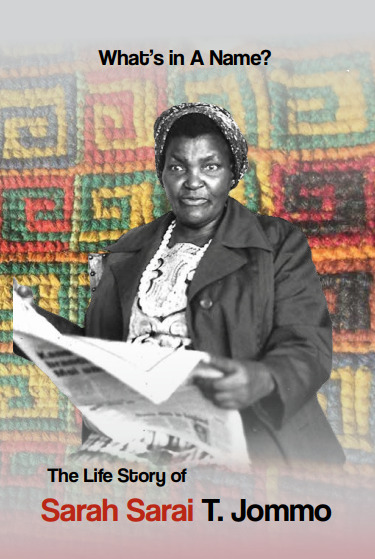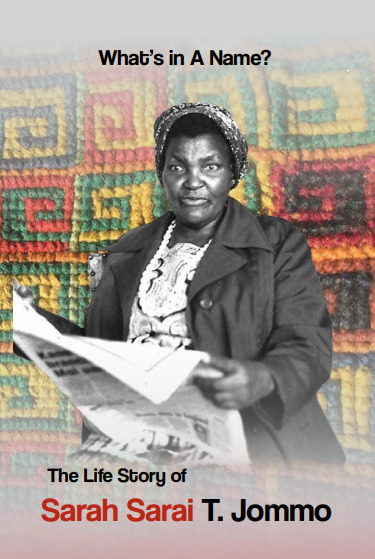
Whats in a Name?
Subtitle: Life Story Of Indomitable Sarah Sarai Thara
Author: Berewa R. S. Jommo
Born on November 13, 1913, Sarai Sarai Thara defied cultural and political barriers to become a trailblazer in education, healthcare, and activism. She overcame family resistance to attend school, trained as a nurse-midwife, and worked in Kenya and Uganda. Her encounters with colonial racism inspired her to found the Nairobi African Women’s League (NAWL) to advocate for women’s rights. Opposing both colonial oppression and male-dominated political movements, she was arrested in 1952 and spent seven years in prison—the longest-serving female political prisoner. After independence, Sarai continued empowering women, assisting Kenyan students abroad, and leading protests against Somalia’s territorial claims in Ethiopia. Despite her immense contributions, she received little state recognition. She passed away on July 14, 2003, at 90, leaving behind a legacy of courage, activism, and dedication to women’s empowerment in Kenya. May her soul rest in peace.
Keywords for this book
You can only order 1 ebook at a time
Book summary
Sarai Sarai Thara, born on November 13, 1913, was a resilient woman who overcame significant personal and societal challenges. After seven stillbirths and miscarriages in her family, her birth was marked by a ritual to ward off death, giving her the name "Thara" ("snatched"). She pursued education despite opposition from her father, escaping through a dangerous forest to rejoin school. Baptized as Sarah Sarai Thara, she endured Kikuyu cultural rites before being allowed to continue her education, later training as a nurse-midwife. Her career took her across Kenya and Uganda, but her experience with colonial racial discrimination drove her to activism. She founded the Nairobi African Women’s League (NAWL) to counter the European-exclusive East African Women’s Social Service League. Sarai’s advocacy for nonviolent racial and gender equality clashed with colonial authorities and male-led political movements. Arrested in 1952, she was imprisoned for seven years without trial, becoming Kenya’s longest-serving female political prisoner. After independence, Sarai continued empowering women and children, organizing community programs, and advocating for inclusion. She helped stranded Kenyan students abroad and led a massive protest in Ethiopia against Somalia’s territorial claims. Despite her contributions, she received little recognition from the independent Kenyan government. Sarai passed away on July 14, 2003, at age 90, leaving behind a legacy of resilience, activism, and dedication to women’s and children’s rights.
